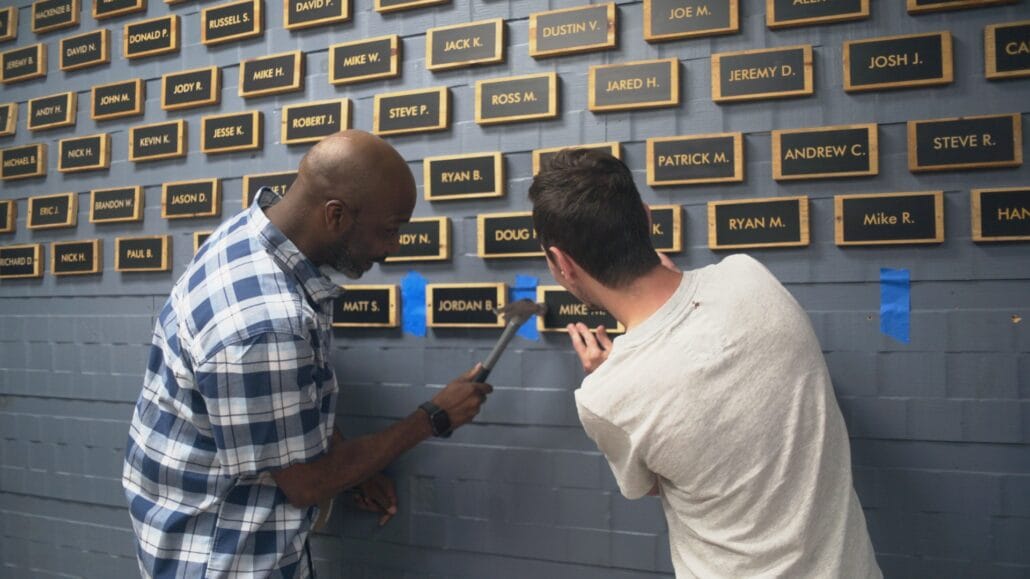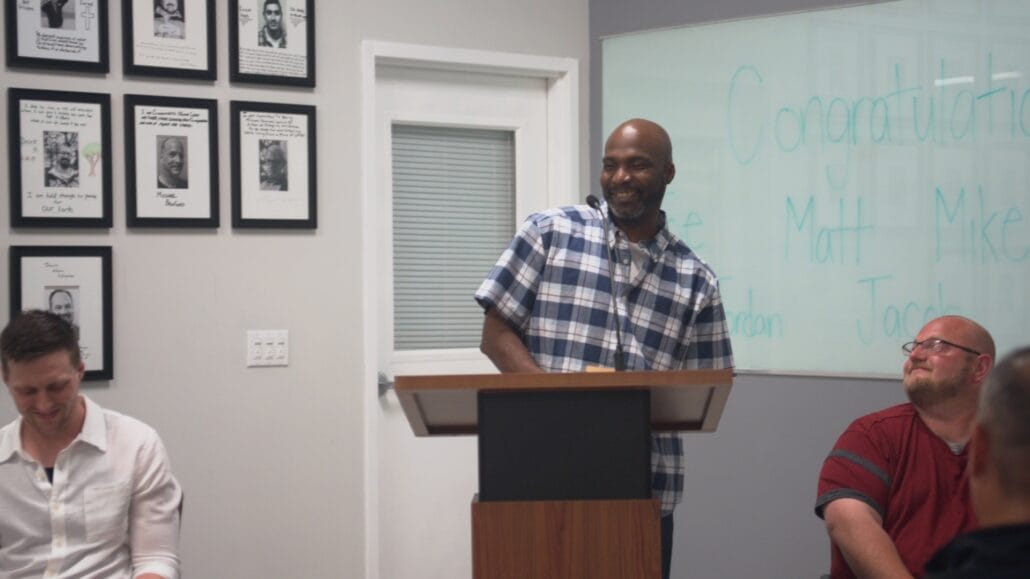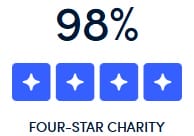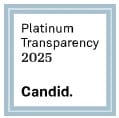Living on the street is awful. Just ask Mike.
“It gets real rough, especially in the winter. It’s a dog-eat-dog world out there. No sleep. You are always up, watching your back. You’re always trying to figure out where your next meal coming from.”
That was his life for years. Today he is sober, healthy and employed, with a clear-eyed understanding of how the path to homelessness and hopelessness started with his drinking at a young age.
“I had a rough upbringing. I was on my own. And I thought drinking was a cool thing to do. And that it took away all my problems. Everything I was worried about disappeared — for that moment.”
Until it didn’t. He ended up in prison and then back on the streets, homeless. The despair finally caught up to him and he drank himself right to the emergency room.
“They sent me to detox, and a guy asked, ‘Do you want recovery? Do you want to live?’”
Mike said he did. That’s how he started down a whole new path, at Guiding Light.
When he arrived and spent some time alone, as all new arrivals do, in “the Blue Room,” a staff member gave him some advice: “They said, ‘This place, give it a try. They’ll help you. You’ll look at life different.’”
And that’s exactly what happened.
“I do look at life different. I came from out of the darkness into the light. I think that’s why they call this Guiding Light. I stepped into the light, and I could see clearly now. Believe me, I can see clearly. I think God showed me a different way.”

That different way was a night-and-day contrast to his old life, Mike said.
“I feel like I’m part of a community, which I never felt before. I’ve always felt I was existing. Now I feel like I’m somebody. People depend on me much as I depend on them. It’s a big difference.”
Mike said he appreciates being held accountable and getting feedback about his decisions — even when it might be uncomfortable to hear criticism. That’s another contrast to his old way of living.
“I was never willing to do anything. Never. If it didn’t come as a benefit to me, I wouldn’t do anything. They’ve taught me here to do the next right thing. Even if it’s just small, make sure it’s consistent and make sure it’s right. I’m going to do the right thing, even when nobody’s looking, because that makes me a better person. It makes me feel good that I’m doing right. Makes me a better man.”
That includes setting goals — like getting his driver’s license so he can go visit his teenage children in Alabama. He hasn’t spoken with them in more than seven years, and he regrets that they never knew him as sober.
“I’m going do a little soul searching, build up my nerve to call them, see if they want to let me reintroduce myself as a changed man.”
Mike likes keeping busy with routine of his responsibilities at Guiding Light and his job outside. His recovery even has him thinking of something that would have seemed unimaginable in his old life on the streets.
“Someday I just want to own my own home. Even just a little house. A place I could invite my kids, my sister, come over and have a barbecue. Show them that living a sober life is good. I know I’m not going to get a house tomorrow. But maybe in five, six years, I keep doing the right thing, and I believe I’ll get there.”
Mike appreciates the care that the staff of Guiding Light showed toward someone who once did not even care about his own life. He remains amazed that “they could change a broken-down man and build him up and help him see what life is all about.” And he knows it’s all made possible by donors.
“I want donors to know that the things that they’re doing, it’s a blessing. They turn lost men into found men. I was lost and now I’m found, thanks to the donors. I really appreciate them and everything that they do.”
He appreciates it even more when he looks back on his old life — the isolation, hunger, fear and darkness — and how his perspective has gradually shifted toward the bright light of hope.
“I used to think life was all bad. Then I started thinking like, ‘Well, it’s not that bad.’ Then it was like, ‘it’s getting better.’
“And now? It’s just getting greater.”





